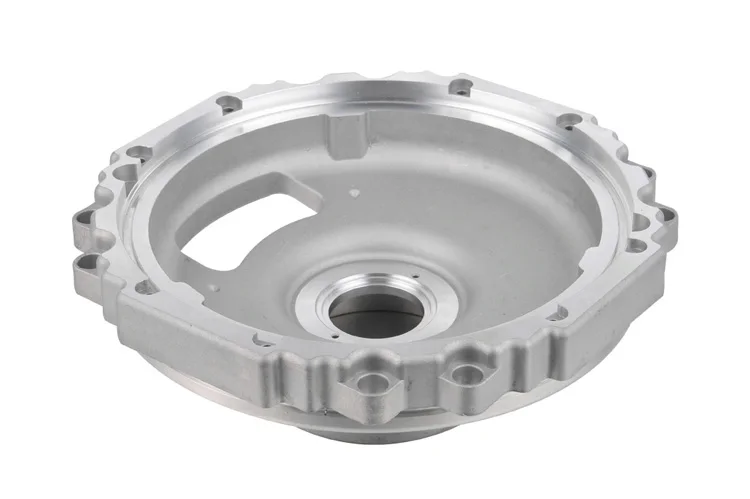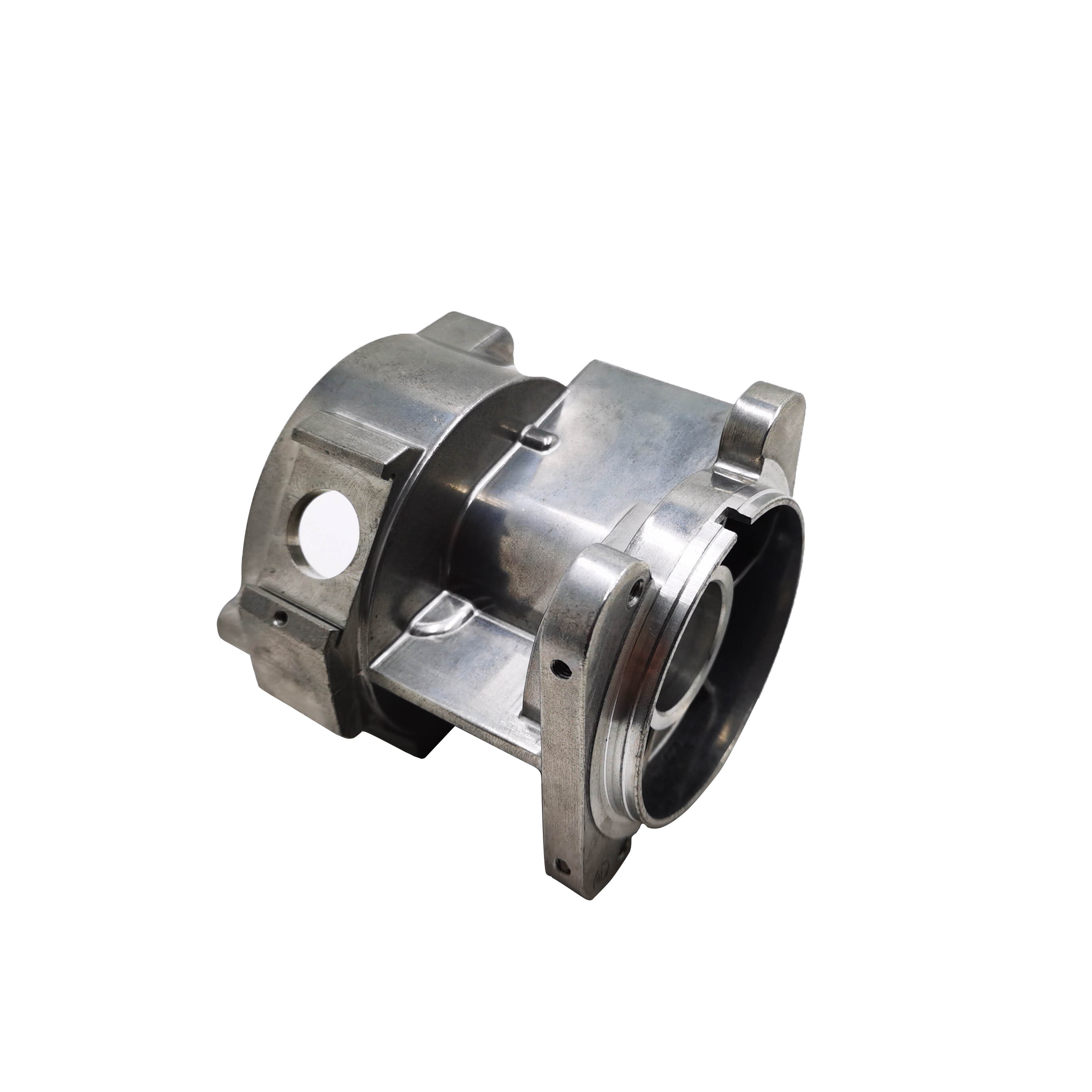Aluminum Casting Company innovations that drive industrial design
Discovering the Cutting-edge Procedures Behind Modern Aluminum Shop Operations
Modern light weight aluminum factory procedures are undergoing considerable improvement. Automation and AI are reshaping production approaches, boosting both performance and precision. The integration of 3D printing is simplifying mold and mildew development, while sustainability techniques are ending up being extra essential. Each of these innovations plays a key duty in redefining the industry. Nevertheless, the implications of these changes expand past mere manufacturing efficiency. What possibilities and obstacles lie ahead for aluminum factories in this developing landscape?
The Role of Automation in Aluminum Foundries

In addition, automation adds to improved safety criteria within the factory environment. By transferring harmful tasks to machines, human employees can concentrate on supervisory roles and high quality control, decreasing the risk of crashes. Additionally, information analytics originated from automated procedures provide beneficial insights right into functional performance, causing much better decision-making and continual improvement. As the need for light weight aluminum items grows, the fostering of automation innovations will likely broaden, additionally transforming the landscape of light weight aluminum foundry operations.
Improvements in Casting Technologies
Recent developments in casting technologies are changing aluminum shop operations. Developments such as 3D printing integration, progressed alloy formulations, and automated procedure optimization are enhancing effectiveness and product quality. These growths are essential in meeting the progressing demands of the market.
3D Printing Integration
Integrating 3D printing modern technology into light weight aluminum foundry operations has reinvented typical casting methods, boosting both effectiveness and precision. This ingenious approach enables the quick manufacturing of complex molds and cores, considerably lowering preparations and product waste. By making use of additive production, foundries can develop intricate geometries that were impossible or previously challenging to attain with standard strategies. The adaptability of 3D printing additionally makes it possible for quick design alterations, cultivating an extra active production process. In enhancement, this assimilation supports making use of lightweight frameworks, which is significantly crucial in sectors such as automobile and aerospace. As aluminum foundries remain to take on 3D printing, they place themselves at the leading edge of technical improvement, driving enhancements in product top quality and operational abilities.
Advanced Alloy Formulations
The advancement of advanced alloy formulations has significantly improved casting modern technologies in aluminum factory operations. These formulations incorporate various elements, such as copper, magnesium, and silicon, to improve mechanical buildings and thermal resistance. By tailoring the structure of light weight aluminum alloys, makers can accomplish details performance characteristics that meet the needs of varied applications, from auto parts to aerospace structures. Using advanced alloys likewise adds to minimized weight and boosted strength, which are crucial consider modern engineering. Additionally, innovations in alloy growth allow far better fluidness during spreading, leading to boosted surface coatings and reduced flaws. Generally, advanced alloy solutions represent a significant leap ahead, placing aluminum factories to satisfy the evolving needs of different markets properly.
Automated Process Optimization
Innovations in casting innovations have led the way for automatic process improvement in light weight aluminum shop operations. By incorporating sophisticated software and real-time data analytics, factories can now improve manufacturing procedures and enhance quality control. Automated systems monitor variables such as temperature, cooling, and pressure rates, permitting prompt adjustments that reduce problems and waste. Additionally, machine discovering formulas evaluate historical performance data to predict perfect settings, thereby increasing effectiveness and decreasing cycle times. Robotics also play a considerable function, managing repeated tasks that enhance security and precision. On the whole, these advancements not just drive operational effectiveness yet additionally allow foundries to fulfill the expanding demand for high-grade aluminum parts in various industries.
Smart Production and Market 4.0 Assimilation
The integration of Smart Production and Market 4.0 within aluminum shops is changing functional effectiveness. By leveraging IoT innovations, automation, and robotics, foundries can enhance production procedures and lower downtime. Furthermore, data analytics supplies vital understandings that enhance decision-making and drive constant renovation.
IoT in Foundry Workflow
As manufacturers significantly embrace the Net of Things (IoT), foundry procedures are experiencing a transformative change in the direction of smart production and Industry 4.0 integration. Aluminum Foundry. IoT innovations allow real-time data collection and analysis, improving decision-making procedures and functional effectiveness. Sensors and linked tools monitor devices efficiency, product use, and environmental problems, permitting positive upkeep and resource optimization. This connectivity fosters a much more dexterous manufacturing setting, where modifications can be made promptly in feedback to market needs. Furthermore, IoT promotes boosted traceability and high quality control, as information from the whole production cycle can be easily accessed and evaluated. Generally, the assimilation of IoT in shop operations substantially enhances productivity and drives advancement in aluminum production processes
Automation and Robotics Combination
Automation and robotics combination is revolutionizing light weight aluminum factory operations by improving efficiency and precision. This transformative technique streamlines procedures such as molding, putting, and completing, decreasing human mistake and enhancing outcome uniformity. By utilizing innovative robotic systems, shops can achieve greater manufacturing rates while preserving rigid high quality standards. Automated systems also make it possible for real-time tracking and adaptive control, permitting swift changes to production specifications. In addition, the integration of robotics reduces labor expenses and alleviates safety and security dangers connected with hands-on handling of liquified metal. As shops welcome wise production principles integral in Market 4.0, the harmony in between automation and robotics solidifies their one-upmanship, leading the way for sustainable growth and technology in the aluminum casting industry.
Data Analytics for Efficiency
Taking advantage of information analytics greatly improves performance within aluminum factory operations, lining up with wise manufacturing and Market 4.0 concepts. By leveraging real-time data collection and evaluation, factories can keep track of manufacturing procedures, forecast devices failures, and enhance resource allowance. This data-driven technique helps with insightful decision-making, making it possible for supervisors to determine bottlenecks and improve workflow. Furthermore, anticipating analytics empowers shops to expect market needs, consequently minimizing waste and guaranteeing timely item delivery. Assimilation of data analytics with IoT devices boosts functional presence, fostering a positive maintenance more info society. Inevitably, implementing these innovative logical strategies not only increases productivity however also drives development, positioning aluminum shops to fulfill the developing demands of the industry while maintaining competitive edges in a rapidly transforming landscape.
Lasting Practices in Aluminum Casting
While the aluminum casting sector has actually traditionally faced ecological challenges, numerous foundries are currently taking on sustainable techniques to reduce their effect (Aluminum Foundry). A significant focus has actually been on reusing aluminum scrap, which not just decreases waste yet additionally saves energy contrasted to key light weight aluminum production. Ingenious melting innovations, such as induction furnaces, improve energy performance and reduced greenhouse gas emissions
In addition, foundries are executing closed-loop water supply to decrease water intake and lower thermal pollution. Making use of green binders in mold-making processes is getting traction, further reducing hazardous emissions.
In addition, some facilities are spending in renewable power sources to power procedures, straightening with worldwide sustainability objectives. By integrating these methods, the light weight aluminum spreading market is evolving towards a more eco accountable future, showing that economic growth can exist side-by-side with environmental stewardship - aluminum casting. These initiatives show a dedication to sustainability and the importance of ecological liability in manufacturing
High Quality Control Innovations
As the light weight aluminum spreading sector breakthroughs towards sustainability, the importance of quality control advancements becomes significantly obvious. Modern light weight aluminum shops are adopting sophisticated modern technologies to boost their quality control procedures. Strategies such as real-time surveillance and data analytics permit manufacturers to detect problems and inconsistencies early in the production cycle. Implementing automated evaluation systems furnished with device learning formulas guarantees that products meet strict quality requirements while decreasing human error.
Additionally, the assimilation of non-destructive testing methods, such as radiographic and ultrasonic inspections, offers deeper insights right into the honesty of castings without damaging the material. These technologies not just boost item dependability however additionally decrease waste, straightening with sustainability objectives. Additionally, the fostering of standardized high quality frameworks assists streamline procedures throughout different shops, assuring consistency in output. Jointly, these developments are reshaping top quality control, cultivating a society of excellence within the light weight aluminum casting industry.
Future Patterns in Aluminum Foundry Workflow
What technologies lie in advance for light weight aluminum foundry procedures? The future of aluminum shops is positioned for improvement through advancements in automation, man-made knowledge, and sustainable techniques. The integration of robotics and automated systems is expected to improve efficiency and accuracy in the casting procedures, decreasing human error and labor costs. In addition, AI-driven analytics will enable real-time monitoring and predictive maintenance, maximizing operational efficiency and reducing downtime.
Sustainability continues to be a focal point, with shops increasingly embracing green methods, such as utilizing recycled light weight aluminum and developing low-emission melting technologies. Developments in 3D printing are additionally expected to change mold-making, permitting complex geometries and lowered product waste. As the industry accepts digitalization, data-driven decision-making will become essential, enabling shops to react promptly to market needs. Jointly, these fads assure to redefine light weight aluminum shop operations, making them much more reliable, lasting, and versatile to future obstacles.

Frequently Asked Concerns
What Precaution Are Applied in Aluminum Factory Workflow?
Light weight aluminum factory operations implement different precaution, consisting of individual safety devices, air flow systems to manage fumes, normal safety and security training, emergency situation reaction strategies, and strict tracking of temperature and tools to protect against mishaps and warranty worker safety and security.
Just How Do Shops Manage Labor Force Educating for New Technologies?

What Products Are Generally Reused in Aluminum Foundries?
Aluminum shops frequently recycle scrap aluminum, including post-consumer products like beverage cans, automobile components, and construction materials. This recycling process minimizes waste and saves resources, contributing to an extra lasting light weight aluminum manufacturing sector.
Exactly How Does Aluminum Spreading Influence the Atmosphere?
Aluminum casting influences the environment through energy-intensive processes, greenhouse gas emissions, and possible neighborhood air pollution. Innovations in reusing and lasting practices can reduce these effects, promoting an extra environment-friendly approach to light weight aluminum production.
What Are the Normal Lead Times for Light Weight Aluminum Spreading Projects?
Typical preparation for light weight aluminum casting projects differ considerably, usually ranging from 2 to 6 weeks. Aspects influencing these timelines consist of intricacy, order size, and material availability, affecting overall production routines in shop procedures.
Automation significantly plays a crucial function in light weight aluminum foundries, enhancing effectiveness and precision in the manufacturing process. Advancements in casting technologies have paved the method for automatic process enhancement in aluminum factory procedures. Taking advantage of data analytics significantly improves efficiency within light weight aluminum factory operations, lining up with clever production and Market 4.0 principles. A substantial focus has been on recycling aluminum scrap, which not only reduces waste yet additionally saves energy compared to primary light weight aluminum production. Aluminum factories frequently reuse scrap aluminum, including post-consumer products like beverage canisters, automotive parts, and building products.